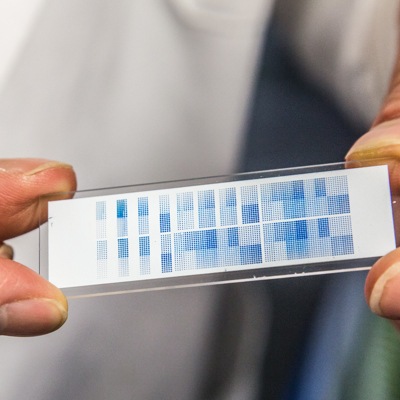Funding Research to Slow and Stop Cancer Spread
The research
The Appeal is supporting pioneering research into how cancer spreads (metastasis). By uncovering the biological processes that enable tumours to migrate and grow in other parts of the body, this work aims to identify new ways to stop or slow progression. The insights gained could lead to targeted treatments and smarter care strategies that improve outcomes and quality of life. In time, these advances could benefit people affected by a range of cancers, including those of the breast, bowel, liver and pancreas.
“We would see better outcomes, less aggressive treatments and increased survival rates. It would be more cost-effective and we wouldn't need as many drugs for as many patients.
Professor John Robertson
How the science works
What “spread” means
-
Some cancer cells learn to break away from the original tumour.
-
They invade nearby tissue, slip into blood or lymph vessels, travel, then settle and grow in new organs.
Key steps scientists study
-
Escape: Changes in cancer cells let them loosen from their neighbours and cut through surrounding tissue.
-
Entry to vessels (intravasation): Cells pass into blood or lymph by opening tiny gaps in vessel walls.
-
Survival on the journey: Only a few cells survive stress and the immune system while circulating.
-
Landing (extravasation): Cells exit vessels and hide within a new organ’s tissue.
-
Colonisation: With help from local support cells and blood vessels, they start forming new tumours.
How researchers investigate
-
Cell and organoid models: Mini 3D “tumours in a dish” to watch cells move and test medicines.
-
Imaging: High-resolution microscopes track single cells as they invade and travel.
-
Genetics & proteomics: Sequencing DNA/RNA and mapping proteins to find the switches that drive movement and growth.
-
Microenvironment studies: Examining immune cells, fibroblasts and blood vessels that help or hinder spread.
-
Computational biology: Using AI and modelling to spot patterns and predict which pathways to block.
-
Preclinical testing: Trying drugs that interrupt steps above—e.g., blocking signals that help cells migrate or stick to new sites.

Why it matters
-
By pinpointing the crucial “handoffs” in the spread process, scientists can design treatments to stop or slow progression, reduce complications, and improve quality of life across many cancer types

What your donation could provide
Your donation will continue our work in helping to improve the lives of people living with cancer. However much you choose to donate, learn about the difference it could make to research into a blood test for the early detection of breast cancer.
- £15 Could pay for one hour of time for a lab technician
- £50 Could buy vital equipment for the laboratory that cannot be funded via research grants
- £100 Could pay for a laboratory assistant’s time for a day ensuring smooth running of the research project